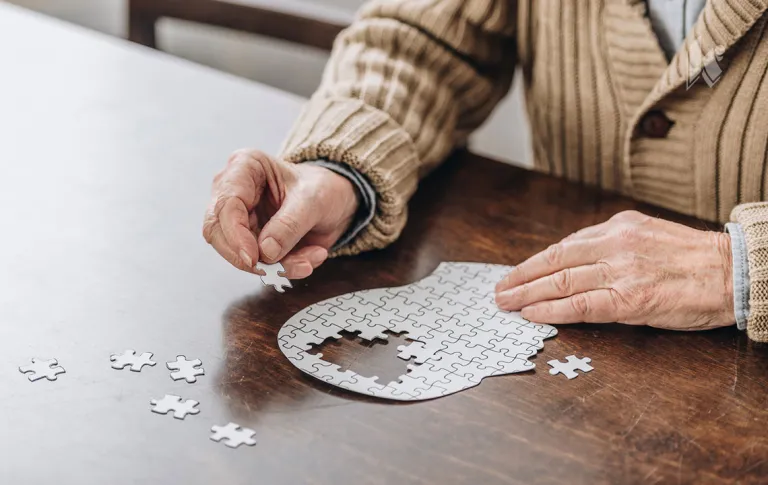
The brain is the most impressive organ of the human body. The list of functions the brain performs seems endless: it coordinates both voluntary and involuntary movement, receives information from the nervous system, and stores memories.
With all that the brain can do, it’s little wonder why we worry about brain health as our loved ones age. Our worry can increase when we see these changes firsthand, paired with the stereotypes we see in the media.
Matthew Pinto, MA, MHC, has years of training and experience working with people experiencing memory loss. He offers valuable information and tips for family caregivers to help them through these changes.
The Cause of Memory Loss
Pinto says that, “The more [people] understand how the brain progresses through aging, the better they are with supporting individuals’ needs as they age.” While we’re still trying to fully understand what the brain goes through, we know a lot to give us a basic understanding.
Most people think that brain changes begin later in life, but this is only partially true. Our brains actually start shrinking in our 30s and 40s. This shrinkage accelerates in our 60s. Not all areas of the brain shrink at the same rate, either. The two regions most affected are the frontal lobe and hippocampus. They play a major role in forming and storing memories, thinking, reasoning, and behavior. As such, these are the areas most people experience changes with as they age.
For people with dementia, the brain changes that they experience are different. Dementia is a set of symptoms caused by abnormal changes in the brain and is associated with many other common disorders and diseases older people experience.
“As dementia progresses, the receptors in the brain start to disintegrate,” Pinto says. This can cause the cases of greater memory loss and personality changes. Depending on the cause of the dementia, the exact changes that a person undergoes can vary widely.
Any of these changes in the brain, whether aging-related or a form of dementia, cannot be reversed in most cases. However, they can be managed and mitigated, allowing for years of quality life.
Tips for Family Caregivers
For family members, it can be incredibly difficult to watch a loved one change as they age. As a result, there can be uncertainty with how to interact with their loved ones during this time of their life.
Matthew Pinto offers some tips that everyone can adopt.
First, Pinto says “Go to their reality, don’t bring them to yours.” The world our loved ones are experiencing can be quite different from our own. However, correcting them can make people very frustrated, either with you or themselves. This can lead to anger, resentment, and shutting people out. Instead, it’s important to be open and to go along with your loved ones. Going along with their reality can allow you to better connect with them.
Second, Pinto says, “Don’t ask fifty questions to your loved ones.” While the questions can be well-meaning, they can overwhelm and confuse people with memory loss. If they have trouble coming up with the answer, this can lead to frustration and anger. It can also feel like an interrogation to the person; even if they do answer everything correctly, it can increase distrust and break down the relationship in the long run.
Not sure what to talk about? Pinto suggests, “Talk about your day and things going on in your life.” This gives your loved one a guided conversation that they can participate in, without the burden of “getting everything right.” Then, see where the flow of conversation takes you.
Finally, if your loved one is living in a memory care community, talk with the staff there. They have training and experience with people who are undergoing brain changes. They can help you understand these ongoing changes and how to approach your loved ones.
Kingsway Can Help
It can be challenging to navigate caretaking for aging family members. Kingsway Community can help. Our Memory Care Center, located within Kingsway Manor Assisted Living, was designed to provide care and support to our residents dealing with memory loss and their families.
If you would like to learn more, Matthew Pinto will be giving a presentation on how to best communicate and engage a loved one who is experiencing memory loss on October 16, 2024. (Learn more from the event page here.) And if you’d like to learn more about Kingsway services or schedule a tour through our campus, reach out to us today.